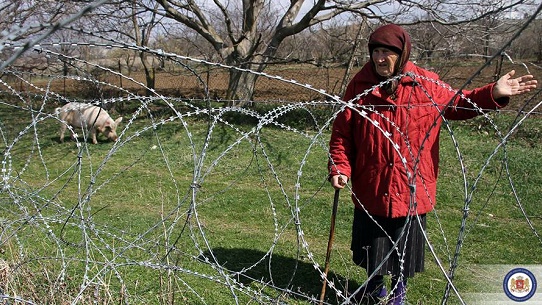Tskhinvali closes so-called border with Georgia for Easter

Citizens of Georgia living near the occupation line with Tskinvali (South Ossetia) region will have no chance of celebrating the upcoming Easter on April 12 as tradition calls to honour their loved ones.
As it was centuries ago in Georgia, Orthodox Christians will visit the graves of their beloved and also take part in a holy liturgy at their local churches.
Authorities of Tskhinvali (South Ossetia) region decide to close the so-called border with Georgia on Easter holidays and not to allow Georgian citizens to visit cemeteries of loved ones, Tskhinvali based news agency RES reported.
"Due to strengthen security measures during the celebration period of Easter, on April 11-12 will not will allowed citizen of Georgia cross the border of South Ossetia with Georgia,” RES released.
According to the RES, civilians will not be allowed to cross the so-called border during the Easter holiday. The news agency realised that the press service of the so-called Security Committee reports so-called border with Tskhinvali region will reopen on April 13.
Several cemeteries and churches are now isolated from villages after barbed wire fences were installed along the so-called Administrative Boundary Line.
In order to manage possible arrangements to facilitate visits to cemeteries and religious sites over the upcoming Easter period was set by Georgian side at the 53rd meeting of the Incident Prevention and Response Mechanism (IPRM) held in Ergneti on March 25. But negotiations ended unsuccessfully.
Meanwhile, last year on the eve of Easter, Russian border guards detained three Georgian citizens on suspicion of ‘violating the state border’ of South Ossetia.
Broadcasting company TV3 reporter Bela Zakaidze, cameraman Vahko Lekiashvili and technical support staff member Mikheil Mikhoev were detained by Russian border guards near the Adzvi village on April 15, 2014.
They were released after 24 hour detention in Tskhinvali prison.
 Tweet
Tweet  Share
Share